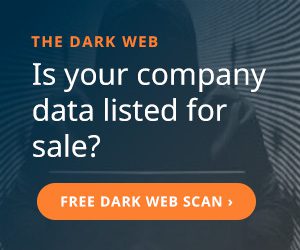Learn how Access Services, Inc. fully implemented their Electronic Health Record with the help of enkompas Technology Solutions to improve outcomes for the people they serve, their employees, and their business.
About Access Services and Behavioral Health
Access Services, Inc. is a leader in social services across four service lines – Behavioral Health (BH), Children and Family Services (CFS), Housing and Homeless Services (HH), and Intellectual Disability and Autism (IDA). Their BH service line delivers community-based services to children and adults across ten programs, including Intensive Behavioral Health Services (IBHS), Mobile Crisis, and Justice Related Services (JRS).
Access Services had been working within a partially implemented Electronic Health Record (EHR) for 10 years, but Behavioral Health struggled to fully leverage it and used systems outside the EHR to capture certain types of data. They needed an EHR solution that was fully implemented to tap into its full power for improved reporting, compliance, and outcomes.
The Challenge
Access Services worked with Electronic Health Record software that was later purchased by Netsmart Technologies and transitioned to their myEvolv software. According to Jessica Halpin, Vice President of Behavioral Health at Access Services, the service line didn’t understand the capabilities of the EHR, so they were “reinventing the wheel” and building workarounds within the system instead of leveraging built-in features.
Experience Growth in Your Company Through EHR Optimization
For instance, Access Services opted to utilize textboxes for entering qualitative information instead of leveraging discrete fields within the EHR. However, this approach hindered their ability to seamlessly report on pertinent service and record data, as qualitative textfields offer limited functionality for tracking trends or conducting comprehensive analysis compared to structured data fields within the EHR. Accurate data capture within the EHR is paramount for informed clinical decision-making and robust outcome measurement, particularly in critical domains such as risk assessment, intervention efficacy, and client engagement. In addition, Access Services was not using their EHR as the single interface for capturing all their care related data. Not only did this further limit their reporting capabilities, but it also wasted time among their front-line workers as they engaged with multiple interfaces.
Finally, Access Services had a small IT department. When new forms needed to be added or an existing form required changes, Behavioral Health typically waited a long time for the updates needed. Plus, the delays were only part of the problem. Requesting changes produced stress and anxiety because the employees knew the request had to be perfect the first time, or they’d face additional, lengthy delays to update the form a second time.
The Solution
Access Services brought in enkompas Technology Solutions as a partner that could, as Halpin put it, “translate services into software and vice versa.” After some growing pains early in the partnership between enkompas and Access Services, trust was earned, and a true partnership emerged where everyone worked toward the goal. enkompas helped Access Services understand the full capabilities of the Electronic Health Record and how to leverage it to support both their clients and employees, as well as to better manage the agency.
According to Halpin, the Subject Matter Experts (SMEs) at enkompas did the heavy lifting, managing the entire process. enkompas’ Organizational Change Management Blueprint helped Access Services align their services with the EHR technology and learn to use EHR software as intended. SMEs at enkompas also took the lead on Project Management, Communications Management, and training. This allowed employees at all levels to provide input and engage with the EHR without sacrificing the level of care they provide in the communities they serve.
With their duel understanding of the software and the social services offered, enkompas facilitated documenting workflows and the development of new EHR forms to capture all inputs within the EHR. Leveraging the EHR’s built-in capabilities allowed for efficient compliance, outcomes reporting, and tracking metrics. The forms also eliminated the duplicative need to capture data in Excel spreadsheets. enkompas and Access Services initiated a plan for changing habits and transitioning away from using Excel and uploading physical documentation.
Finally, the enkompas IT technicians focused primarily on the hardware infrastructure and holistic system maintenance. In contrast, enkompas EHR SMEs brought specialized expertise in optimizing Electronic Health Record (EHR) functionalities. These SMEs played a pivotal role in expanding the agency’s IT capabilities specifically tailored to the EHR domain. They facilitated the swift addition and updating of EHR forms, ensuring alignment with industry standards and regulatory requirements while also optimizing usability for end-users.
By helping Access Services fully adopt and begin to optimize its EHR, the agency gained the power to use the system as it was intended instead of duplicating efforts and crafting workarounds.
The Results
Behavioral Health at Access Services now operates more effectively and efficiently since the agency fully implemented – and began optimizing – its Electronic Health Record. Here are some highlights:
- enkompas Organizational Change Management Blueprint helped Access Services trust the EHR because the right stakeholders had input and the agency knew they had leadership support.
- Trusting the EHR made front-line staff and their managers willing to let go of doubling efforts and using Excel spreadsheets to ensure required client data was reported.
- Drastically reduced the time required to update form due to program implementation and change request processes and IT support from enkompas. This also reduced the stress when staff made change requests and accelerated their ability to iterate toward optimizing their EHR.
- Mapped workflows that aligned with EHR forms led to efficient generation of reports for data-driven decisions and improved outcomes.
According to Jess Halpin, the ability to iterate created a seismic shift in how Access Services looks ahead. According to Halpin:
“We can dream now. We can imagine new ways of reaching our goals, knowing we have the means and support to help us. We can think about what’s the ideal world, imagine how to get from here to there, and know it’s now possible to make progress toward that ideal vision.”
The EHR’s built-in risk assessments provide an excellent example of how accurate data improved decision making within Behavioral Health. Access Services generates reports on risk screenings, and the results can be graphed to identify trends. For instance, their ability to intervene and prevent their clients from requiring hospitalization and how quickly they re-engage with clients upon their release from the hospital are two of their success metrics. Shortening the time between discharge from the hospital and restoring community support has been proven to minimize the need for re-hospitalization.
Access Services risk data demonstrated they were well within the state standard of re-engaging within seven days of discharge. In fact, they exceeded the standard by far, with an average duration of just one day between discharge and their next engagement. These readily available metrics demonstrate how they’re reducing hospitalizations because they engage rapidly and effectively after discharge. The ability to demonstrate successes like this prepares the agency for Alternative Payment Models and Selective Contracts.
Additionally, streamlined reporting and graphical representation of risk assessments and other metrics enable leadership to identify disparities between actual performance and targeted goals. This capability enables leaders to pinpoint areas requiring improvement and develop targeted training initiatives, thereby enhancing decision-making processes with greater insight and precision.
Finally, Jessica Halpin described one of the biggest impacts of the EHR implementation on Behavioral Health as concerning “keeping the people we serve at the center.” Effective workflows translated into a fully adopted EHR improved conditions for the staff, the people they serve, and the agency itself.
End-users (direct service workers) save time and frustration by using one interface. The people they serve are experiencing improved outcomes. The agency increased revenue and improved cash flow. Halpin said working with enkompas to fully implement an EHR allowed Access Services to “hold these all together and balance their needs. Everyone involved is being considered, so things get better for everyone.”
Summary
Access Services detailed how it was not a straightforward process to implement and optimize the Electronic Health Record on their own. Agencies have difficulty fully understanding an EHR and its capabilities, as they are not change management, technology, or software experts and need to remain focused on the care they provide. After over 10 years of working with a partially implemented EHR, working together in a true partnership with enkompas finally made the difference for Access Services.
About enkompas Technology Solutions
enkompas powers your entire technology environment, working closely with your team to provide strategic enterprise technology solutions. With nearly 30 years of experience as a trusted managed IT services partner, our goal is to help you build a secure, scalable organizational roadmap. Contact us for more information on how enkompas Technology Solutions can help your organization achieve similar EHR implementation success, guided by our Subject Matter Experts and proven Organizational Change Management Blueprint.


